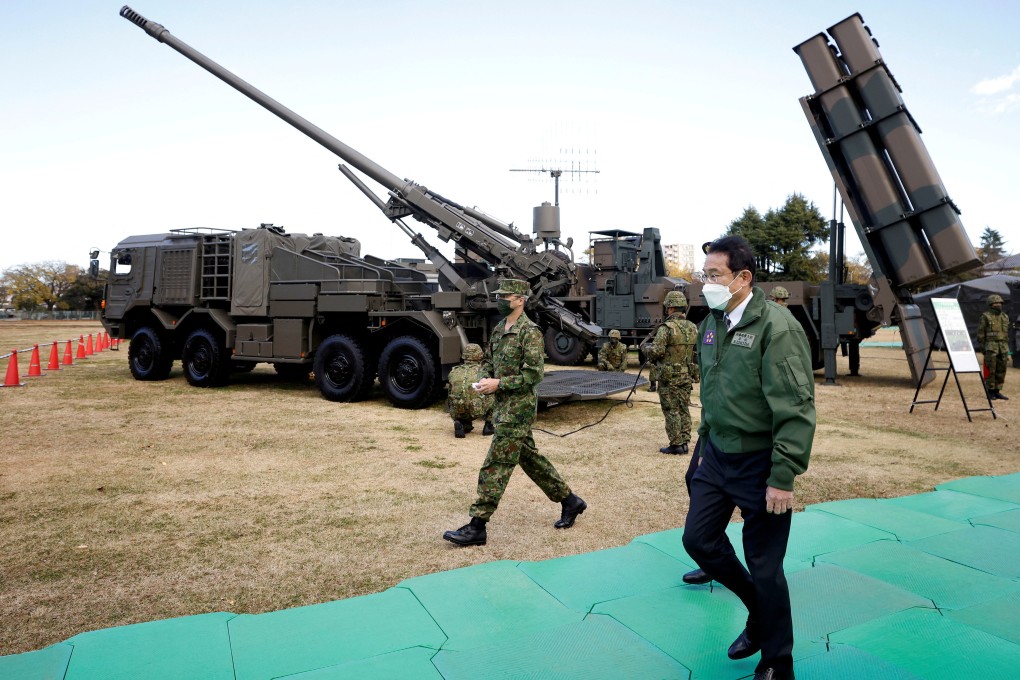Editorial | Japan defence plans to raise regional tensions
- With Beijing being portrayed as an aggressor, Tokyo is seeking to boost military spending and develop longer-range missiles despite its pacifist constitution

Beijing has every right to improve its defence capabilities to protect sovereignty and expanding interests. But Japan and its allies, the United States foremost among them, are portraying China as an aggressor.
For Tokyo, that is justification to boost military spending and develop and deploy missiles with increasingly longer ranges. That goes against the grain of the country’s pacifist constitution, while heightening regional instability and risks.
The Japanese defence ministry’s budget request for the next financial year seeks US$40.4 billion, a 1.1 per cent increase on 2022, the 11th successive rise under the Liberal Democratic Party-led government.
With the actions of China, Russia and North Korea perceived as creating a worsening security environment, a long list of military equipment and vehicles is sought to strengthen the country’s capabilities.
Among them are development of cruise and high-velocity ballistic missiles and research into hypersonic projectiles. Such moves are in keeping with Prime Minister Fumio Kishida’s vow to “fundamentally reinforce Japan’s defence capabilities within the next five years”.
But should the funding request be approved and the missiles developed, questions have to be raised about their purpose. Japan’s present missiles have a range of only a few hundred kilometres, ensuring they are genuinely defensive.
